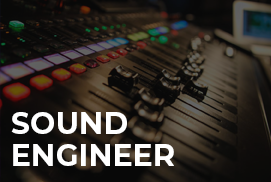

Sound is an essential component of the esports experience, whether it’s the roar of the crowd, the sound effects of the game, or the commentary of the casters. This is where Sound Engineers come in. In this article, we’ll discuss what a Sound Engineer is and how the role can tie into esports.
A Sound Engineer is responsible for designing, setting up, and operating sound systems for live events, such as concerts, theater performances, and in this case, esports tournaments. They work with the production team to create sound designs that enhance the overall experience of the event. Sound Engineers must have a deep understanding of sound technology and design, as well as the ability to troubleshoot issues and provide solutions in a timely manner.
In the esports industry, Sound Engineers play a critical role in creating an immersive and engaging experience for both players and spectators. They are responsible for designing and setting up sound systems that provide high-quality audio for the game and the commentators. This includes configuring microphones for the casters and players, as well as designing sound effects that enhance the action in the game.
During esports tournaments, Sound Engineers work closely with the production team to ensure that the sound design is executed correctly and that any issues are resolved quickly. They must be able to adapt to changes in the schedule or gameplay and make adjustments to the sound design as necessary to create the desired effect.
To become a Sound Engineer in the esports industry, you’ll need to have a solid foundation in sound design and technology, as well as experience working with live event production technology and equipment. Knowledge of video streaming and broadcasting technology is also important.
In addition to technical skills, you’ll need to have excellent communication and problem-solving skills. You should be able to work well under pressure and be able to troubleshoot issues quickly and effectively. The ability to work well in a team environment is also crucial, as you’ll be working closely with other production professionals and stakeholders.
The esports industry is a rapidly growing field that offers a range of career opportunities for production professionals, including Sound Engineers. As the industry continues to expand, the demand for skilled professionals who can create immersive and engaging experiences will increase. If you’re interested in pursuing a career as a Sound Engineer in esports, you should focus on developing your technical skills, communication skills, and problem-solving abilities to ensure that you’re well-equipped to succeed in this dynamic industry.
